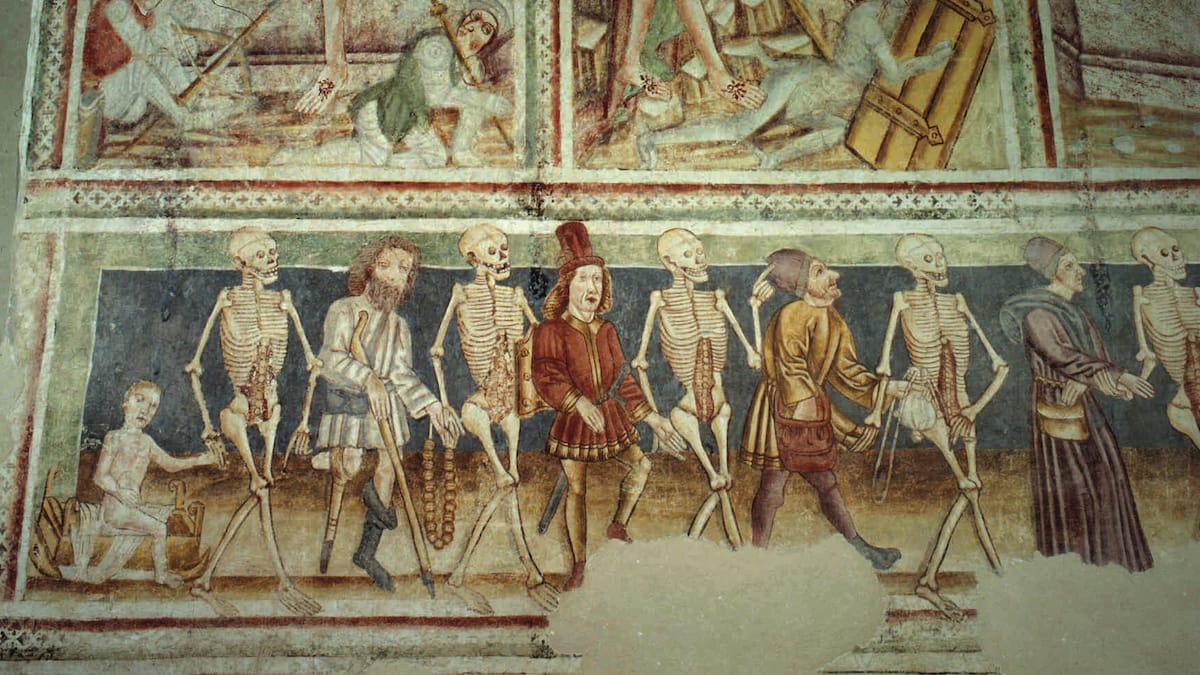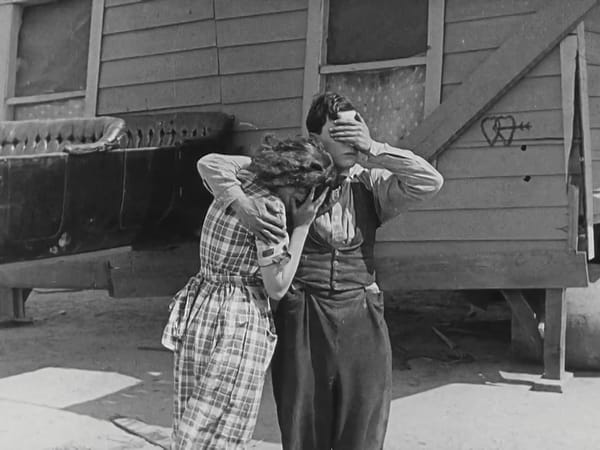On Film Criticism #5: Ego

Still from Danses Macabres, Skeletons and Other Fantasies (2019)
As I have been spending more time going out lately (and especially in October, hence the lack of a new issue that month), I have been experiencing that strange sense of disconnect one can sometimes feel not so much between who one is in public and at home, but between the idea of the self as a completely sealed-off thing, and the actual way I get around in the world. We are not Sims or Playmobils, it turns out. We are more than the sum of our parts. And as much as it pains my moody teenage self and my current cinephile self to admit it, it seems human beings are not meant to be alone, but to socialise. All the essays in this month’s issue connect one way or another to the idea of the ego, and to what can happen when it is set aside.
The first essay is an interview by returning writer Christina Newland with none other than Peter MacDonald and executive assistant Madelyn Most. The names may not ring a bell, but MacDonald directed Legionnaire (1998), which you may not know about either. Put simply, Legionnaire is only one of the best Jean-Claude Van Damme films ever made. It is also a film maudit of sorts: very expensive to make and something of a departure for JCVD, it was released straight to video in most countries including the US and the UK.
Secondly, I write about everyone’s new favourite 3.5 to 4 star film, The Last Duel (2021). The film’s critical ‘success’ raises questions about director Ridley Scott’s auteur status and his place in today’s Hollywood, and his recent comments in interviews put me in mind of another prolific Hollywood director: Don Siegel.
Ruairí McCann offers an eye-opening essay on the possibilities of the ‘vacation film’ as illustrated by Treasure Island (2018) from French director Guillaume Brac, and Danses Macabres, Skeletons and Other Fantasies (2019) by Jean-Louis Schefer, Rita Azevedo Gomes and Pierre Léon. He writes that just as holidaymaking can be “an act of departing the familiar for brand new or rarely visited territory” or a “scripted, packaged and hierarchical” experience, cinema “has varyingly been described as a medium uniquely predisposed (and so, potentially morally obliged) to depict reality, and as an escape hatch where the real world and its inconveniences can be left at the door.”
James King, another returning writer, looks at the work of Mia Hansen-Løve not as an “empathy machine” but as a cinema rooted in empathy, and the one particular camera movement she employs to make us stick with her sometimes frankly unlikable characters.
Finally, I write about Claire Simon’s I Want to Talk About Duras (2021), a portrait of the man who chose to disappear completely into his relationship with French writer Marguerite Duras and a disturbing film precisely about the boundaries of the self and the limits of love.




